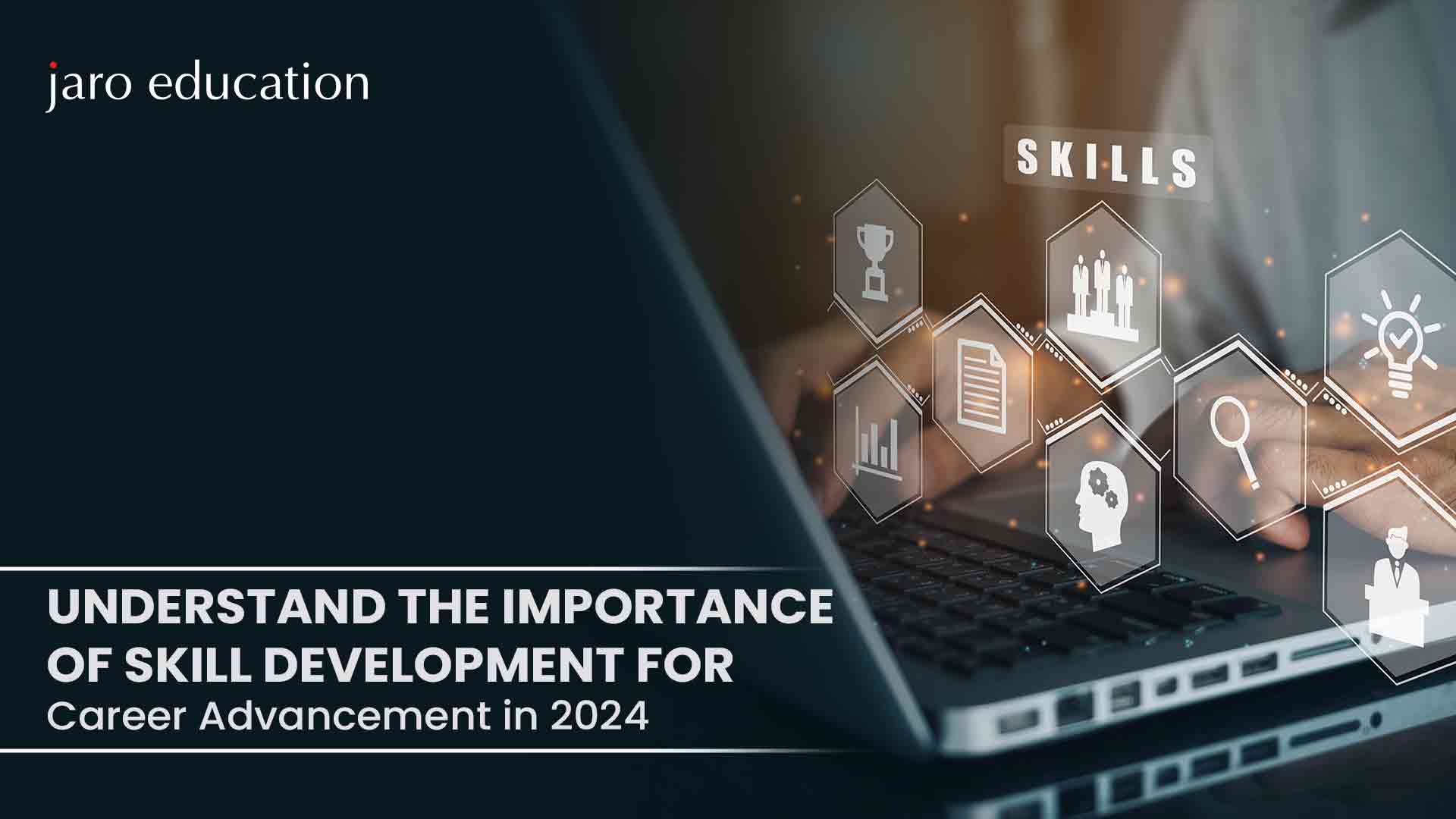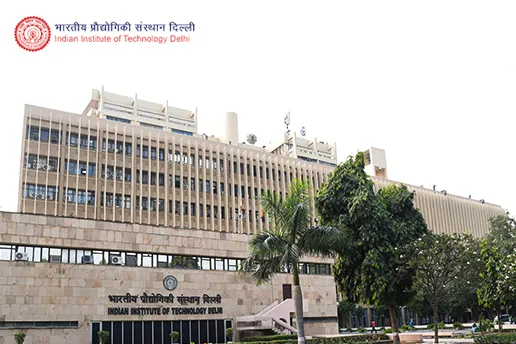![Best 10 Diploma Courses for a Better Career [2024]](https://jaro-website.s3.ap-south-1.amazonaws.com/2024/05/Best-10-Diploma-Courses-for-a-Better-Career-2024-1.jpg)
- jaro education
- 5, May 2024
- 10:00 am
Acquiring specialized skills has become a key driver of success in today’s career environment. Diploma courses offer a focused and practical approach to learning, equipping individuals with the expertise needed to excel in their chosen fields. Diploma courses have emerged as a practical solution for many looking to quickly adapt to these changes. Unlike traditional four-year degrees, diploma programs are typically shorter, more focused, and directly aligned with industry needs.
Diploma courses offer hands-on training and practical skills that are immediately applicable in the workplace, making them an ideal choice for both new entrants and professionals seeking to pivot their careers swiftly. These courses facilitate easier and faster entry into the workforce and are particularly beneficial in fields where practical experience trumps theoretical knowledge.
Table of Contents
In this blog, we’ll thoroughly explore the best diploma courses, detailing the course content, key skills developed, career opportunities, and leading institutions offering these programs. This structure will provide readers with comprehensive insights to make informed decisions tailored to their career ambitions.
Importance of Choosing the Right Diploma Course
Selecting the right diploma can be a pivotal decision in one’s professional life. The appropriate diploma does more than educate; it can set the stage for rapid advancement, job stability, and increased earning potential. Diplomas designed to fill high-demand roles in the workforce particularly enhance employability immediately upon graduation. For instance, a diploma in cybersecurity can open doors to various high-priority security roles in numerous industries amidst growing global concerns about data breaches and cyber threats.
Moreover, the right diploma can provide a clear pathway for career progression. It equips students with both foundational knowledge and specialized skills that are highly valued in the market, thus paving the way for upward mobility. From technical skills like machine learning in a Data Science diploma to leadership training in a Diploma of Project Management, these credentials are tailored to boost careers from entry-level positions to managerial roles efficiently.
Top 10 Best Diploma Courses for 2024
We’ve curated a list of the top 10 best diploma courses for 2024. Each course is meticulously selected based on industry demand, career relevance, and potential for personal and professional growth. Let’s explore these exciting opportunities that could pave the way for a rewarding career ahead.
1. Diploma in Digital Marketing
The Diploma in Digital Marketing covers a wide array of topics designed to equip students with a holistic view of the digital marketing fields. Typically, the curriculum includes:
- Search Engine Optimization (SEO): Methods aimed at improving website visibility and rankings on search engine results pages (SERPs).
- Content Marketing: Approaches focused on generating and disseminating valuable, pertinent, and consistent content to engage and retain a specific audience segment.
- Social Media Marketing: Use of platforms like Facebook, Instagram, and Twitter to build brands and engage with customers.
- Email Marketing: Effective communication methods to promote products or services and incentivize customer loyalty.
- Paid Advertising: Mastery of Google Ads, Facebook ads, and other paid channels to drive traffic and conversions.
- Analytics: Leveraging data from digital campaigns to refine strategies and improve outcomes.
Key Skills Developed
- Individuals who pursue this course will gain a comprehensive set of digital marketing skills:
- Strategic Planning: Ability to design and implement effective digital marketing campaigns based on business goals.
- Technical Proficiency: Understanding of tools and platforms integral to online marketing, including Google Analytics,
- CRM software, and content management systems.
- Creative Thinking: Skills in creating compelling content and inventive strategies to capture audience interest.
- Analytical Skills: Competency in interpreting data to optimize marketing strategies and maximize ROI.
Career Opportunities and Potential Job Roles
This diploma opens up a range of career paths within diverse sectors, including but not limited to:
- Digital Marketing Manager
- SEO Specialist
- Content Marketing Specialist
- Social Media Manager
- Digital Campaign Analyst
- Online Brand Manager
These roles are in high demand across various industries, particularly in companies focusing on digital transformation and online presence.
2. Diploma in Data Science
A diploma in Data Science stands as a critical educational pathway, preparing students to handle vast amounts of data and derive actionable insights. This course is crucial because data-driven decision-making is now central to business strategies across all industries.
Skills Covered
The Diploma in Data Science curriculum is designed to cover a broad spectrum of foundational and advanced topics that empower students with both the theoretical knowledge and practical skills necessary for success in the field:
- Statistical Analysis: Understanding data distributions, hypothesis testing, and data-driven inference.
- Machine Learning: Supervised and unsupervised learning, neural networks, and deep learning techniques.
- Programming Languages: Proficiency in Python and R, the most commonly used programming languages in data science.
- Data Management: Skills in managing data within databases, data cleaning, and data manipulation.
- Data Visualization: Ability to create visual interpretations of complex datasets using tools like Tableau or PowerBI.
- Big Data Technologies: Familiarity with Hadoop, Spark, and other frameworks used for processing large datasets.
Career Paths Available Post-Completion
Individuals who completes a Diploma in Data Science have a wide array of career paths available to them, reflecting the versatility and demand for their skill set:
- Data Scientist: Analyzes and interprets complex digital data to assist in decision-making.
- Data Analyst: Focuses on processing huge datasets to provide actionable insights.
- Machine Learning Engineer: Designs and implements machine learning applications.
- Data Engineer: Develops, constructs, tests, and maintains architectures, such as databases and large-scale processing systems.
- Business Intelligence Analyst: Uses data to make strategic business decisions.
- Quantitative Analyst: Focuses on algorithmic or data-driven solutions to stock, finance, and other numerical data problems.

*leapscholar.com
3. Diploma in Web Development
The Diploma in Web Development equips students with the skills needed to build and maintain dynamic and responsive websites that enhance a company’s online footprint. As virtually all industries shift towards online platforms to improve visibility, engage with customers, and drive sales, the demand for skilled web developers has significantly increased.
Technologies and Languages
The Diploma in Web Development covers a comprehensive range of technologies and programming languages essential for front-end and back-end development:
- HTML/CSS: The foundation of web development, used to create and style webpages.
- JavaScript: A critical language for adding interactivity to websites, commonly used alongside libraries such as React or frameworks like Angular.
- PHP and MySQL: Widely used for server-side scripting and database management.
- Ruby on Rails: This framework enables developers to achieve more with less code compared to many other languages and frameworks.
- Python and Django: Python is renowned for its readability and efficiency, while Django, a high-level Python web framework, promotes quick development and clean, practical design.
- Version Control/Git: Crucial tools for overseeing code changes in projects and promoting collaborative teamwork.
Types of Projects and Portfolios Built During the Course
Throughout the Diploma in Web Development, students engage in various hands-on projects that not only reinforce learning but also contribute to a professional portfolio that showcases their abilities to potential employers:
- Personal Website: A personal portfolio website that includes information about the developer, their resume, and examples of past projects.
- E-Commerce Site: Building a fully functional online store that includes product listings, a shopping cart, user authentication, and payment processing.
- Interactive Web Applications: Creation of web apps using JavaScript and frameworks like React that include user input, API integrations, and dynamic content updates.
- Responsive Design Projects: Projects that emphasize building websites that work on various devices and screen sizes using advanced CSS techniques and frameworks.
- Content Management System (CMS): Development of a custom CMS to understand backend structures and database management with PHP or Python.
4. Diploma in Cyber Security
The Diploma in Cybersecurity is crucial in preparing individuals to protect organizations from data breaches, cyberattacks, and other security vulnerabilities. This course is not only timely but essential, as the increasing interconnectivity of devices and the proliferation of data across the internet expand the surface area for attacks. Governments, healthcare institutions, financial services, and small to large businesses all require robust cybersecurity measures, underlining the urgent need for trained professionals in this field.
Key Competencies Gained During the Course
The Diploma in Cybersecurity curriculum is designed to equip students with a comprehensive set of skills to address and mitigate security threats effectively. Key competencies include:
- Network Security: Comprehension of safeguarding computer network infrastructure, emphasizing policies and protocols to prevent and monitor unauthorized access, misuse, alteration, or denial of network-accessible resources.
- Ethical Hacking: Practices and abilities to ethically breach networks for vulnerability identification and risk assessment purposes.
- Cryptography: Examination of secure communication methods ensuring only the intended sender and recipient can access message contents.
- Security Compliance and Audit: Learning the standards and laws related to information security, and how to audit an organization’s security policies and procedures.
- Incident Response and Threat Management: Ability to respond to cybersecurity breaches and effectively manage the aftermath to minimize impact on business operations.
- Forensics: Techniques for investigating and analyzing network intrusions and data breaches to determine the source of the security issues.
Top Roles Available in Cyber Security Sectors
- Cybersecurity Analyst: Protects systems by identifying and solving potential and actual security problems.
- Security Consultant: Offers expertise across various industries to help organizations assess their security measures, identify vulnerabilities, and propose solutions.
- Penetration Tester: Conducts simulated cyber attacks to detect vulnerabilities in security systems before they are exploited by malicious actors.
- Chief Information Security Officer (CISO): An executive at a high level responsible for crafting and overseeing the comprehensive security strategy of an organization, managing all facets of information security.
- Forensic Computer Analyst: Investigates cyberattacks and the breach of data security for law enforcement agencies and private corporations.
- Incident Response Specialist: Manages the aftermath of security breaches and works to restore systems and data.
5. Diploma in Renewable Energy Technology
A Diploma in Renewable Energy Technology is pivotal in cultivating the expertise needed to design, implement, and manage renewable energy solutions. This diploma prepares students to contribute to a sustainable future by harnessing the power of alternative energy sources such as solar, wind, hydro, and biomass. With governments worldwide committing to carbon neutrality and increasing their reliance on renewable resources, the field offers not only a path to environmental stewardship but also a stable and growing career landscape.
Explore Renewable Energy Technologies
Students pursuing this diploma will gain in-depth knowledge of various renewable energy technologies, preparing them to lead in the transition to sustainable energy production. Key areas of study include:
- Solar Energy: Design and maintenance of solar panels and systems for residential, commercial, and industrial applications.
- Wind Energy: Understanding of wind power generation technologies including turbine design, site assessment, and installation.
- Hydropower: Basics of hydraulic technology, including the design and operation of dams and river systems for energy production.
- Biomass: Conversion of organic materials into energy through biochemical and thermal processes.
- Geothermal Energy: Utilization of Earth’s heat for power generation and heating systems.
- Energy Storage Solutions: Techniques to store energy produced through renewables, such as battery storage technologies and thermal storage.
Employment Sectors and Job Sustainability
Individuals pursuing a Diploma in Renewable Energy Technology can find career opportunities in a variety of sectors, reflecting the widespread application of these technologies:
- Renewable Energy Firms: Positions in project development, systems design, and operations management.
- Government and Policy Making: Roles in developing policies and regulations that promote renewable energy adoption.
- Manufacturing and Services: Opportunities in manufacturing components like solar panels or wind turbines, as well as in installation and maintenance services.
- Consultancy and Advisory: Providing expert advice on renewable energy projects and sustainable practices.
- Research and Development: Innovating new technologies and improving existing ones to enhance efficiency and reduce costs.
- Utility Companies: Managing and integrating renewable energy sources into existing power grids.
6. Diploma in Hospitality Management
The Diploma in Hospitality Management is designed to prepare students for a dynamic career in the hospitality industry, encompassing hotels, resorts, restaurants, and other service sectors. This field is particularly appealing due to its global nature and the continuous demand for professional service and management excellence. As travel and tourism recover and expand, particularly post-pandemic, the need for well-trained hospitality managers is expected to grow. This diploma equips students with the broad-based knowledge and specific managerial skills necessary to operate hospitality enterprises efficiently, ensuring guest satisfaction and operational success.
Master Service Excellence and Management Skills
Students in this program will learn a variety of key skills and best practices for service management that are applicable across the hospitality industry:
- Customer Service Excellence: Techniques for exceeding customer expectations and enhancing guest satisfaction.
- Operations Management: Oversight of day-to-day operations including housekeeping, catering, and front office efficiency.
- Financial Management: Understanding and managing budgets, financial statements, and cost control in hospitality settings.
- Human Resources Management: Strategies for effective team leadership, staff recruitment, training, and development.
- Marketing and Sales: Approaches to market hospitality services, manage brand reputation, and drive sales.
- Event Planning: Skills for organizing, managing, and executing events ranging from conferences to weddings.
- Sustainability in Hospitality: Implementing eco-friendly practices that align with modern environmental standards.
Career Opportunities in Global Tourism and Hospitality Industries
Individuals who have enrolled in a Hospitality Management diploma program are well-prepared for a variety of roles within the global tourism and hospitality industries. Some of the most common career paths include:
- Hotel Manager: Overseeing the operation of a hotel, ensuring all services meet the highest standards.
- Restaurant Manager: Managing the day-to-day operations of a restaurant, including food service and staff management.
- Event Coordinator: Planning and executing events, managing client expectations, and ensuring smooth operation from start to finish.
- Tourism Director: Developing and promoting tourism activities that enhance regional or national economic interests.
- Guest Relations Manager: Ensuring all guest interactions meet company standards, resolving complaints, and maintaining high levels of guest satisfaction.
- Hospitality Marketing Specialist: Creating and implementing marketing strategies that effectively promote hospitality services.
7. Diploma in Project Management
The Diploma in Project Management equips individuals with the skills and knowledge necessary to effectively plan, execute, and monitor projects across various industries. In today’s fast-paced business environment, project management plays a crucial role in ensuring the successful delivery of projects on time, within budget, and according to specified requirements. This diploma program provides a comprehensive understanding of project management methodologies, tools, and techniques essential for driving project success.
Key Concepts and Skills Covered
The curriculum for a Diploma in Project Management typically includes:
- Project Planning and Scheduling: Learning how to develop project plans, define project scope, create work breakdown structures, and establish realistic timelines and milestones.
- Resource Management: Understanding resource allocation, team building, and managing project budgets effectively to optimize resource utilization.
- Risk Management: Identifying potential risks, assessing their impact and likelihood, and developing risk mitigation strategies to minimize project disruptions.
- Quality Management: Implementing quality assurance and control processes to ensure that project deliverables meet or exceed stakeholders’ expectations.
- Stakeholder Management: Engaging with project stakeholders, managing communications, and addressing stakeholders’ needs and concerns throughout the project lifecycle.
- Leadership and Team Management: Developing leadership skills to motivate and inspire project teams, resolve conflicts, and foster a collaborative work environment.
- Project Monitoring and Control: Implementing monitoring and control mechanisms to track project progress, identify deviations from the plan, and take corrective actions as necessary.
Career Opportunities in Project Management
Graduates of the Diploma in Project Management program are well-positioned for a variety of career opportunities in project-driven industries, including:
- Project Manager: Leading project teams, overseeing project execution, and ensuring project goals are achieved on time and within budget.
- Project Coordinator: Assisting project managers in planning, coordinating, and monitoring project activities to ensure smooth project execution.
- Risk Manager: Specializing in identifying, analyzing, and mitigating project risks to minimize their impact on project outcomes.
- Quality Assurance Manager: Ensuring that project deliverables meet quality standards and regulatory requirements through rigorous quality assurance processes.
- Construction Manager: Overseeing construction projects, managing construction schedules, and ensuring compliance with building codes and safety regulations.
- IT Project Manager: Leading IT projects, such as software development or system implementations, from initiation to closure, while managing technical resources and stakeholders’ expectations.
- Supply Chain Manager: Managing complex supply chain projects, optimizing logistics processes, and ensuring efficient flow of materials and goods from suppliers to customers.
8. Diploma in Financial Management
A Diploma in Financial Management equips students with the ability to analyze financial statements, manage budgets, and understand financial dynamics, which are crucial for making informed business decisions. As economic landscapes evolve and financial regulations become more complex, the demand for skilled financial professionals continues to grow. This diploma provides the essential knowledge and skills needed to navigate the financial challenges of modern enterprises effectively.
Subjects Covered
The Diploma in Financial Management typically encompasses a broad range of subjects that provide a solid foundation in the financial principles and practices necessary for effective management and leadership. Key areas of study include:
- Accounting Principles: Basic and advanced concepts, including managerial accounting, cost accounting, and financial accounting.
- Corporate Finance: Techniques for managing a company’s finances, including capital budgeting, risk management, and financial modeling.
- Taxation: Understanding of the tax environment, including tax planning, compliance, and legislation pertinent to businesses and individuals.
- Financial Reporting and Analysis: Skills in interpreting financial reports and using these insights to make strategic business decisions.
- Economics: Macroeconomics and microeconomics principles to understand market trends and economic impacts on organizations.
- Risk Management: Identifying, analyzing, and mitigating risks that could impact financial statements.
- Ethics and Corporate Governance: Ethical decision-making processes in finance, emphasizing corporate governance and responsible financial management.
Types of Careers
A Diploma in Financial Management opens the door to numerous career opportunities across various sectors. Graduates can pursue positions including but not limited to:
- Financial Analyst: Provides insights and advice based on financial analysis to improve company profitability.
- Financial Advisor: Offers individuals and companies financial planning services to meet their long-term financial objectives.
- Company Treasurer: Manages the organization’s budgets, and investments, and undertakes risk management practices to safeguard the company’s finances.
- Chief Financial Officer (CFO): Executive role responsible for managing the financial actions of a company.
- Auditor: Examines the financial statements of an organization and reports on compliance and regulations.
- Budget Analyst: Reviews budget proposals and financial requests, reports on financial feasibility.
- Tax Consultant: Specializes in tax advice for individuals and businesses to legally minimize tax liabilities.
To further advance your career, consider taking courses from leading universities via Jaro Education. Jaro Education distinguishes itself by offering free career guidance, a valuable resource for navigating your professional development. Connect to our experts today.
9. Diploma in Health Administration
The Diploma in Health Administration prepares students to manage healthcare facilities, ensuring they operate efficiently while complying with healthcare laws and regulations. This course is essential for maintaining the quality and effectiveness of healthcare services, which is increasingly important in today’s aging population and the expanding healthcare industry. The curriculum typically covers a wide range of skills and knowledge areas:
- Healthcare Systems and Policies: Understanding the structure of healthcare systems, including public health policies and their impact on facility operations.
- Regulatory Compliance: Comprehensive training on healthcare regulations such as HIPAA (Health Insurance Portability and Accountability Act) in the U.S., and other international healthcare compliance standards to ensure facilities operate within legal frameworks.
- Medical Ethics: Ethical considerations in healthcare management, including patient confidentiality and ethical decision-making.
- Healthcare Economics: Insight into the economic factors that influence healthcare management including insurance, Medicare, and Medicaid implications.
- Quality Assurance and Improvement: Techniques to monitor, assess, and enhance the quality of healthcare services.
- Human Resources in Healthcare: Managing the healthcare workforce, including recruitment, training, and retention of healthcare professionals.
- Information Systems Management: Utilization of healthcare information systems to improve patient care and facility operations.
Career Pathways in Healthcare Settings
A Diploma in Health Administration opens up numerous career opportunities within various healthcare settings, from small clinics to large hospital systems, including:
- Healthcare Administrator: Manages the overall operations of a healthcare facility, such as staffing, budgeting, and making administrative decisions.
- Clinical Manager: Oversees a specific department within a healthcare facility, such as surgery, nursing, or physical therapy, and is responsible for both medical and administrative tasks.
- Health Information Manager: Manages patient information and healthcare records while ensuring that they are accurate, accessible, secure, and compliant with federal regulations.
- Hospital CEO/CFO: Executive roles that involve high-level decision-making regarding the entire management and financial operations of a hospital.
- Policy Analyst: Works with government bodies or private organizations to help develop, advocate for, and enact health policies that improve public health outcomes.
- Consultant in Healthcare Administration: Provides expert advice on healthcare management, efficiency improvements, and regulatory compliance to healthcare facilities.
10. Diploma in Graphic Design
The Diploma in Graphic Design uniquely combines creative processes with technical expertise, preparing students to meet the industry’s demands for visually compelling designs and practical applications. This course empowers students to harness artistic talent alongside technological skills, crucial for creating impactful, innovative visual communications that resonate across various media platforms. The curriculum is designed to foster both creative thinking and practical problem-solving abilities, ensuring that individuals can translate abstract concepts into tangible and effective design projects.
Explore Tools and Software
Students enrolled in a Graphic Design diploma will become proficient in a wide array of design software and tools, which are fundamental to producing high-quality work in today’s digital landscape. Key competencies include:
- Adobe Creative Suite: Mastery of Photoshop, Illustrator, and InDesign for creating everything from basic graphics to complex multi-page documents.
- Sketch: Popular for web and mobile app designs, providing tools for a collaborative and responsive design process.
- CorelDRAW: Vector graphic design software utilized for logo creation, marketing materials, and other graphical content.
- Adobe XD: Used for designing and prototyping user experiences for web and mobile applications.
- Figma: Gaining prominence for its versatility in collaborative design environments, ideal for UX/UI design.
- Motion Graphics Tools: Such as After Effects, are essential for creating animated and interactive graphic elements.
Career Avenues in Advertising, Media, and Freelancing
Graduates with a Diploma in Graphic Design are well-positioned for a variety of exciting career paths in the creative industry:
- Graphic Designer: Works in various sectors, creating visual concepts that inspire, inform, or captivate consumers.
- Art Director: Oversees the visual styling of advertisements, magazines, product packaging, and more, guiding a creative team to translate marketing and branding strategies into innovative graphics.
- UI/UX Designer: Designs intuitive and aesthetically pleasing interfaces for digital products like apps and websites, focusing on enhancing user satisfaction.
- Brand Identity Developer: Develops logos and branding material that encapsulate and communicate a company’s identity.
- Motion Graphics Designer: Specializes in animation and visual effects for television, movies, video games, and online videos.
- Freelance Designer: Offers services on a project basis across multiple industries, often managing business aspects like client relations and project fees.
Conclusion
In conclusion, the dynamic nature of the job market in 2024 necessitates strategic choices in education and career paths. The best diploma courses have emerged as agile solutions, offering focused training that aligns with industry demands. This agility is crucial in a landscape shaped by technological advancements and global economic shifts.
The significance of choosing the right diploma cannot be overstated. It serves as a bridge to rapid career advancement, job stability, and enhanced earning potential. Diplomas tailored to high-demand sectors equip individuals with practical skills that are immediately applicable in today’s competitive job market.








